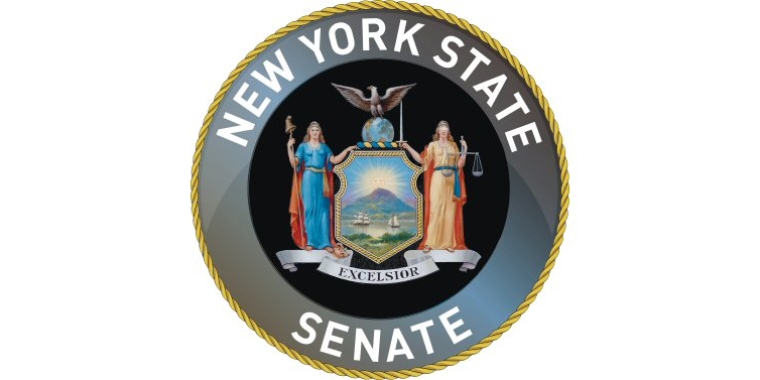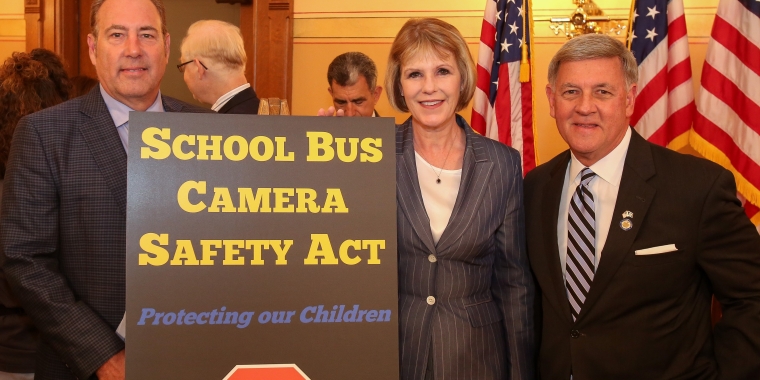Bill Promoting Virtual Learning Signed into Law
Catharine Young
December 19, 2014
-
ISSUE:
- Education
-
COMMITTEE:
- Legislative Commission on Rural Resources
Senator Young's bill creates online learning advisory council to explore online and blended learning programs
ALBANY – Governor Cuomo has signed a bill into law authored by Senator Catharine Young (R, I, C—Olean), Chair of the Legislative Commission on Rural Resources, that will help bring more academic enrichment and opportunities to classrooms across the state.
Senate Bill 5509-C calls for the creation of a statewide online and blended learning program. It addresses the need for new technology and teaching systems that will change the classroom experience for students by providing them with access to unique courses and innovative instructional methods.
Virtual learning programs include online courses as well as blended learning initiatives that combine both a physical location with online resources. They provide schools with cost-effective opportunities for students to access coursework and educational resources otherwise not available.
“Virtual learning systems provide school districts, teachers, and students with new and creative approaches to education. This includes opportunities to directly connect students with subject-matter experts from thousands of miles away, or to provide access to college preparatory or career-specific courses that were not previously available. Virtual learning initiatives open up a wide range of opportunities, especially for rural school districts that face fiscal and geographic challenges,” said Senator Young.
Among these methods is the concept of the “flipped classroom.” It is a blended learning technique where the typical roles of lectures and homework are reversed. Before arriving in the classroom, students watch video lectures that were recorded by their teachers. The discussion and application of the lecture material takes place in the classroom, rather than as a traditional homework assignment.
Virtual learning also creates opportunities for school districts to provide students with access to courses, often through cooperation with other schools, that they would not be able to offer otherwise. For example, students may be able to take a wider range of advanced placement and other college preparatory classes.
“This legislation will help provide our schools with the direction, support and resources necessary to take this important step. Virtual learning experiences will play an integral role in helping to provide our students with a rich and diverse curriculum which they may not have been otherwise able to access. Businesses utilize it, industry harnesses it, the world embraces it; for us not to follow suit is to do a disservice to our students and communities,” said Mr. Richard Calkins, Superintendent of Alfred-Almond Central School District.
“Senator Young's bill takes a huge step forward in addressing the inarguable need in our schools to establish an equitable statewide pathway to transform how we educate our students. This is a critically important bill for the future of all students across New York State, especially those residing in rural, low-wealth districts that have been forced to reduce educational opportunities for students over the past number of years. Virtual learning is not merely a 'nice-to-have' option for our students, it is necessary for their success,” said Mr. Matthew Cole, Superintendent of Livonia Central School District.
These programs have been successfully implemented in parts of Upstate New York and New York City, and there is a need for a statewide program to encourage the delivery of these courses.
The legislation directs the Commissioner of Education to establish an Online Learning Advisory Council and to make recommendations regarding the development and delivery of such services. The council would be tasked with sharing their findings and recommendations with the Legislature and the Governor.
A statewide online and blended learning program must address a range of issues including, but not limited to, broadband access, funding, administrative barriers, and the identification of academic programming that is well-suited for delivery via online and electronic means.
“Our schools are educating the future leaders and innovators of our world. We must provide them with the learning methods, technology, and courses that will enable them to develop the skills they need to compete in a fast-paced environment,” said Senator Young.
-30-
Share this Article or Press Release
Newsroom
Go to Newsroom

